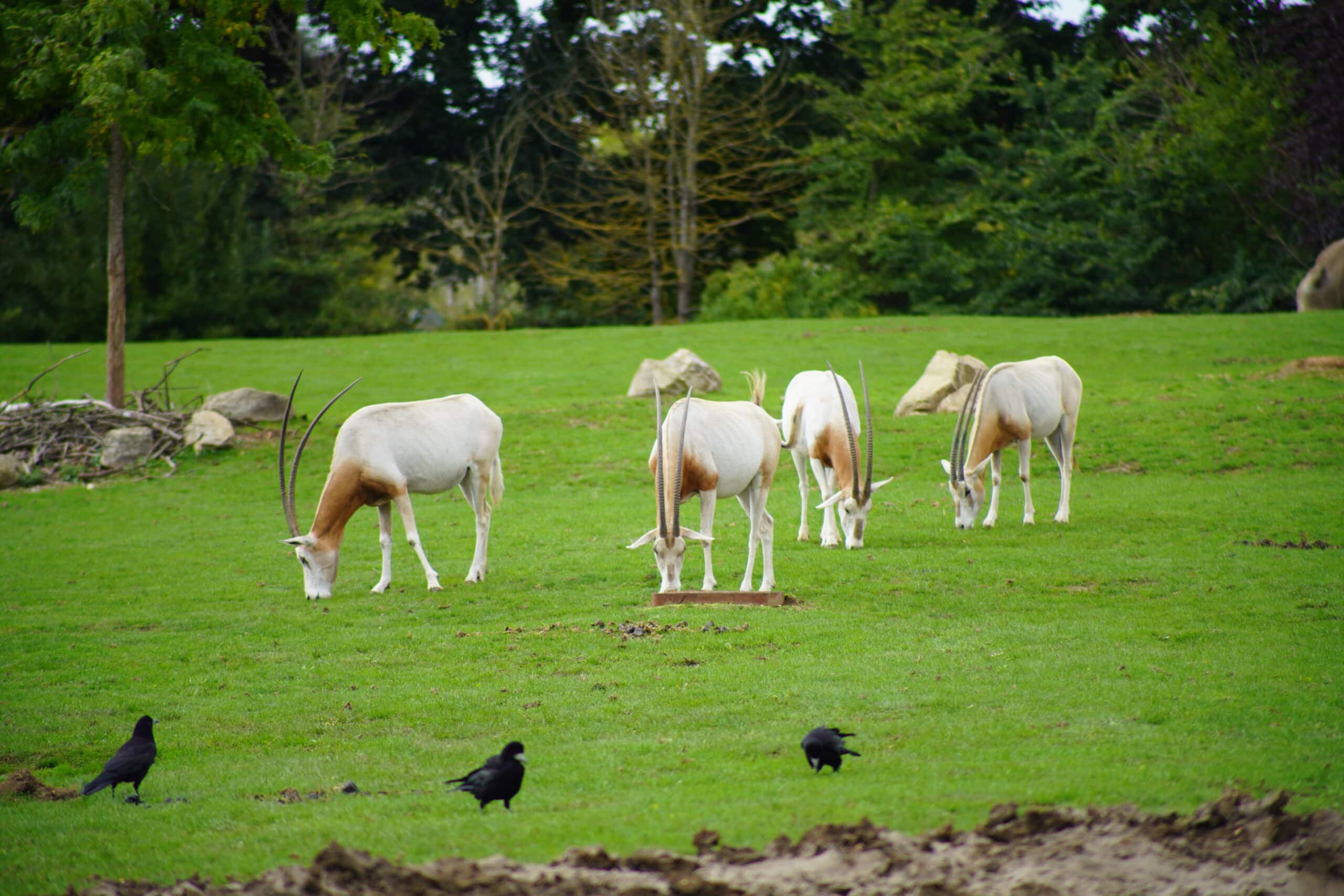Reverse the Red – Saving species is possible
February 7, 2024
February 7, 2024

We’re joining conservation organisations around the world to celebrate Reverse the Red Day by showcasing conservation in action.
Reverse the Red day is all about showing how threatened species can be saved through conservation efforts that help overcome the threats that pose a danger to them.
Marwell Wildlife is proud to play an important role in helping a number of species to make a comeback from the brink of extinction through our conservation work. The charity also owns and operates Marwell Zoo.
Our resident animals include species that were evaluated as Extinct in the Wild by the International Union for the Conservation of Nature (IUCN) Red List and have been reclassified thanks to reintroduction projects using animals in ex-situ care.
Amongst these incredibly important animals are our Przewalski’s horses, and the scimitar-horned oryx, which was declared Extinct in the wild in 2000 but was re-evaluated as Endangered last year thanks to substantial conservation efforts from organisations around the world, including Marwell Zoo.
There is now a self-sustaining population of more than 600 scimitar-horned oryx thriving within Chad’s Ouadi Rimé-Ouadi Achim Faunal Reserve
Taking care of these rare animals in our zoo means we will be able to support future reintroductions if the wild populations should ever need help again.
This work doesn’t happen without organisations around the world coming together to make positive changes and at Marwell we are proud to support the IUCN SSC Antelope Specialist Group, which works to conserve threatened antelope species.
Since 2014 the programme office for the IUCN SSC Antelope Specialist Group has been hosted at Marwell and our work includes supporting (IUCN) Red List and Green Status assessments.
These assessments are important tools used to monitor the health of the world’s biodiversity and keep a record of species population size, current threats and what is being done to mitigate them.
The Red List assesses the risk of extinction while the Green Status documents the recovery of species and impact of conservation action.
In 2023, Marwell started working on Green Status assessments for antelope at risk of extinction, with the aim of completing assessments for all 30 species by the end of 2025.
Sophie Whitemore, zoologist, Marwell said: “Over the years, Marwell Wildlife has been actively involved in the conservation of various threatened antelope species.
“Since 2014 we have hosted the programme office for the IUCN SSC Antelope Specialist Group. Our support for the group goes beyond administrative tasks, including substantial involvement in IUCN Red List and IUCN Green Status assessments.
“In 2023, we initiated Green Status assessments for antelope at risk of extinction, with the aim of completing assessments for all 30 threatened species by the end of 2025.
“We also assessed several high-profile antelopes for the IUCN Red List including Saiga antelope and scimitar-horned oryx, which both were assessed at a lower risk of extinction than before, highlighting the success that can be achieved in conservation.”
You can find out more about Marwell’s conservation work and how the zoo’s conservationists are reversing the fate of some of the rarest animals on the planet at www.marwell.org.uk.
For more information about the Reverse the Red campaign, click here: https://www.reversethered.org/